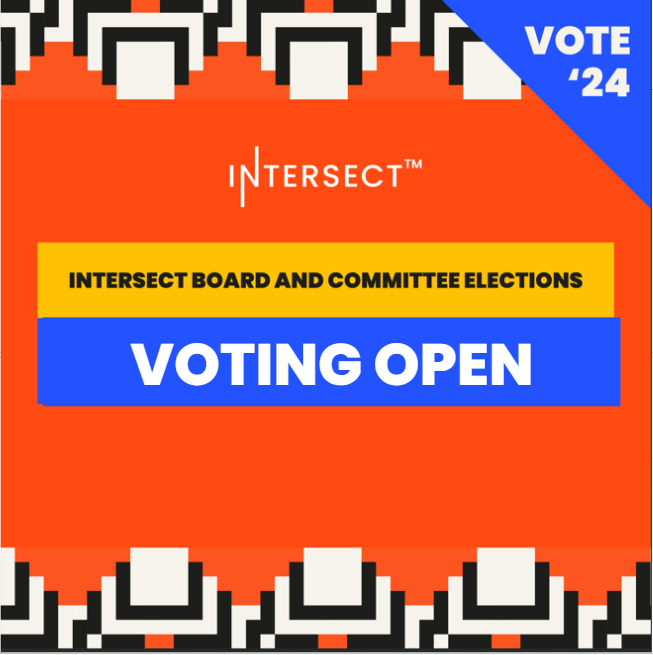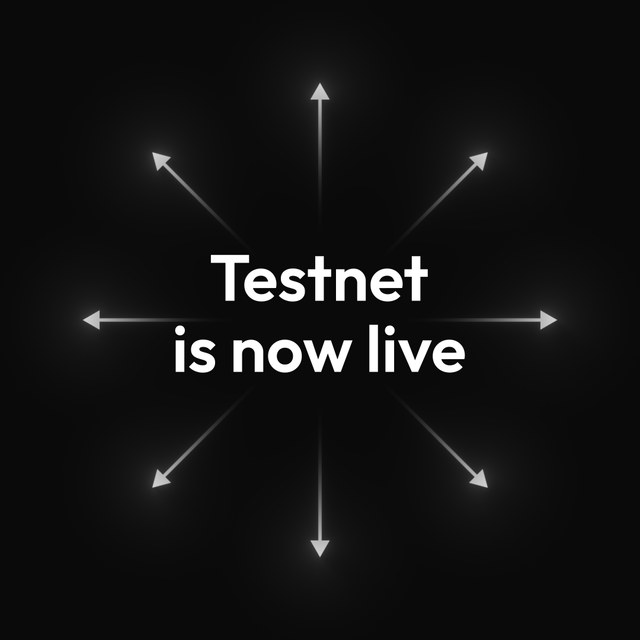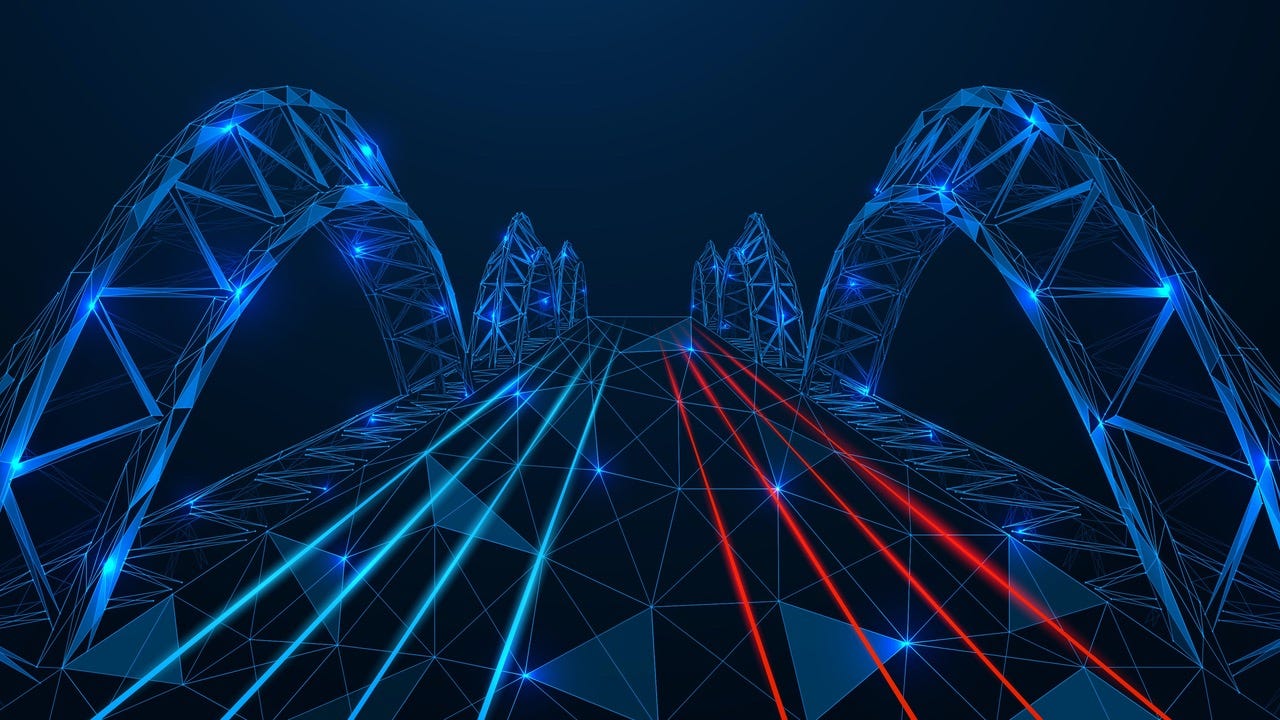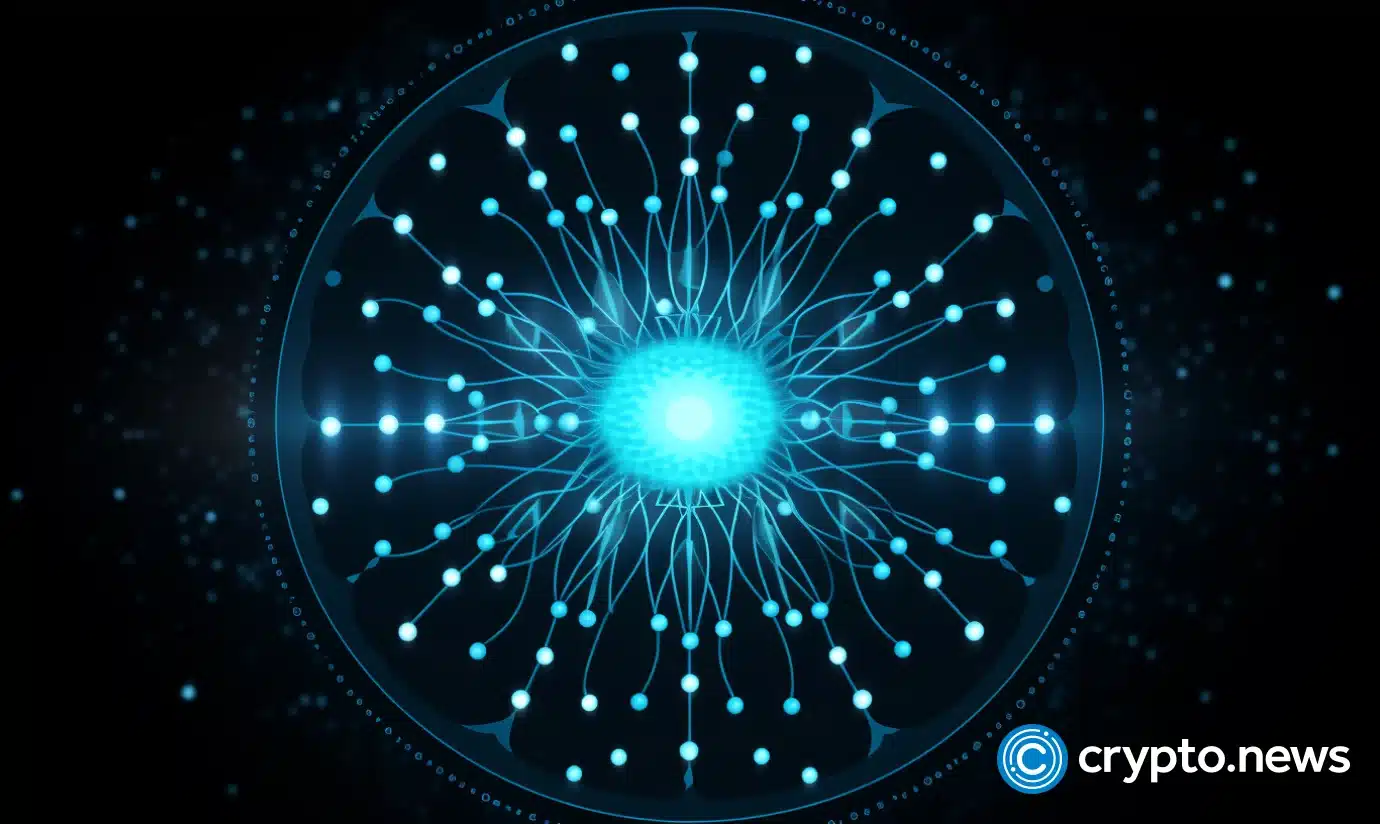Myth busting: It is easy to censor transactions on Cardano
One of the essential advantages of decentralized networks is protection against censorship of transactions. Anyone who creates a valid transaction must be sure that the value will be delivered to the recipient. They say it is easy to censor...
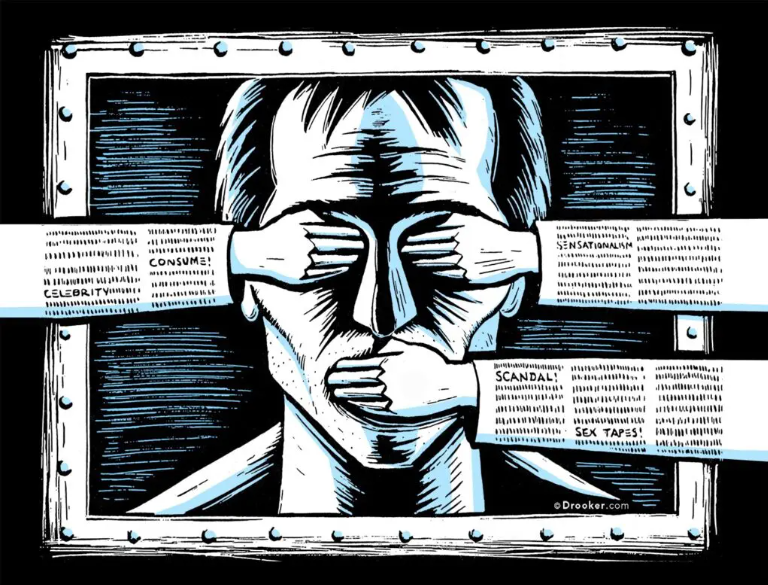
One of the essential advantages of decentralized networks is protection against censorship of transactions. Anyone who creates a valid transaction must be sure that the value will be delivered to the recipient. They say it is easy to censor transactions in the Cardano network because of PoS. We will show that the more decentralized the network is, the more difficult transaction censorship becomes.
How to censor transactions
When a user creates a valid transaction, the network distributes it to all nodes. The network tries to process the transaction as soon as possible after submission. The network does not know in advance which node will create the new block, so the transaction can literally reach the entire world before it is included in the block. If a transaction does not make it into the next block, there is a good chance that it will appear in some subsequent block, which will likely be created by a different node. The insertion of a transaction can be affected by protocol rules. Some networks try to process older transactions preferentially. In other networks, a node decides only by the size of the transaction fee. So older transactions with a smaller fee may wait longer than new transactions with a higher fee.
Decentralized networks are more resistant to transaction censorship than centralized services because they are operated by many independent and autonomous entities from around the world. Moreover, anyone can join the network at any time. If someone voluntarily or forcibly leaves the network, this is an opportunity for someone else who is economically motivated to join the network in order to get a reward.
If authorities can prevent participants from operating nodes in one country, the network will continue to run because it will be maintained by participants from another country. Censorship of transactions that would be enforced in only one or a few countries is essentially meaningless. However, for the purposes of this paper, consider the case that transaction censorship is enforced by most countries in the world.
Transaction censorship is a requirement from the authorities not to insert certain transactions into new blocks. This will prevent the transaction from being processed and thus the coins from being spent. Such transactions can be detected mostly based on the blockchain address. The authorities may have information that a particular address belongs to a criminal and demand that the criminal cannot spend the coins. There may be more than one such blockchain address, resulting in a sort of blacklist of addresses. The list of inconvenient addresses may grow over time.
By definition, a decentralized network has no central management that authorities can ask to censor transactions. Volunteers run the nodes, so the authorities have to find those people and demand censorship. In other words, require blacklisting and filtering of transactions to be applied.
It is important to note that the IOG team has no control over the nodes that are operated by volunteers from all over the world, so they cannot provide any censorship on the Cardano network. The IOG team does not know the identity of the pool operators and all ADA holders. The team cannot order someone to comply with the censorship. It is similar in the case of Bitcoin. It makes no sense to ask Blockstream to ask pool operators and miners to comply.
The authorities must demand censorship from block producers (pool operators). They select transactions into blocks and then distribute the block to the network. Only this group is able to censor transactions.
Blocks are produced by pools in the Cardano network. It is the same in the case of Bitcoin. The authorities have to find the pool operators and demand censorship from them. They can either comply with the demands, move the business elsewhere, or risk punishment in the physical world.
In our case, we assume that most of the world has agreed on censorship. Moving the business is not an option. Pool operators can either go out of business or defy the regulation and risk punishment. If all pool operators went out of business, the network would cease to exist. The only option is to try to run pools secretly.
Let's censor transactions
In the Cardano network, around 2000 pools produce blocks. Some pools are operated by single entities, but we can say that there are hundreds of independent pools scattered around the world. In the Bitcoin network, 80% of the blocks are produced by only 5 pools. The largest pool called Foundry produces 25% of the blocks. Clearly, it is many times more difficult for authorities to find pool operators in the Cardano network than in the Bitcoin network.
Fortunately, it's easy to create a new pool somewhere else. So the problem is solved? Not quite. The number of blocks a pool can produce in a given time depends on the amount of delegated power. In the Cardano network, ADA holders delegate coins. In the Bitcoin network, miners delegate hash-rate to pools.
Each pool operator individually is always the one who decides on censorship. The decision will affect the delegates, who will decide to either support the pool operator's decision or delegate to another pool.
Let us not underestimate the authorities in their ability to think about the problem and enforce the law. If new pools start to appear that produce significant amounts of blocks, the authorities will try to find them. If they fail, they'll look for delegates. In the case of the Cardano network, the authorities have to find essentially all the ADA coin holders. Stakeholders may have coins in an HW wallet and if they want to change the pool they delegate coins to, they only need a single transaction to do so. If they do it cleverly over a private network, the authorities will have no clue to detect them. In the case of Bitcoin, the authorities will have an easy task, as discovering the huge mining halls will be no problem. It is much easier for the authorities to search in the physical world than in the digital world. Better said, it is easier to hide a transaction than to hide a mining hall.
Miners must constantly consume power from the grid and communicate with the pool. For the delegation of ADA coins, a single transaction is enough and it can be made from anywhere.
Moving ASIC miners is costly, visible, and expensive. If the authorities decide to destroy the ASIC miners, the network immediately loses part of the hash rate. It may take some time to produce new ASIC miners. Can the authorities ban the production of ASIC miners? I don't know, but at the very least they can keep track of who buys miners.
A recent study revealed that the hash rate of the Bitcoin network is highly concentrated and has been for the last five years. The top 10% of miners control 90% and just 0.1% (about 50 miners) control close to 50% of the hash rate. It will not be difficult for the authorities to find the biggest miners. Unfortunately, the trend is negative and the centralization of mining continues.
It is significantly easier to enforce censorship in the case of the Bitcoin network, as it is very easy to find a few major actors who can decide on censorship. If we assume that it is possible to run pools secretly, there may be several saturated pools in the Cardano network and the stakeholders may never be found. In the Cardano ecosystem, the decision-making power is in the hands of a larger group of people. If the majority is against censorship, censorship is unenforceable. What matters is who makes the decision. As we have said, in the case of Bitcoin it is a small group of entrepreneurs whereas in the Cardano network it is all users. That's a huge difference.
Can censorship be enforced by a dominant group of delegates?
Consider the case where a minority of delegates disagree with censorship and insert transactions into blocks that the authorities do not like. Let's say 40% of the hash rate opposes censorship and 60% of the hash rate wants to enforce it. Enforcing censorship for blockchain basically means ignoring blocks with censored transactions in them. In the case of Bitcoin, the majority can economically displace the minority. The majority can ignore new blocks produced by the minority. In that case, the minority will not get paid for their work and will be economically destroyed. The majority is able to enforce censorship of transactions.
In the Cardano network, stakeholders hold their stake forever and cannot lose it. There is no competition for rewards between stakeholders. All those who produce blocks receive a reward from the protocol. The majority cannot economically destroy the minority. Moreover, it is not so easy to ignore already produced blocks, since the protocol defines which block should be followed. In the case of Bitcoin, the pool operator can choose which block to use for following in the event of a fork.
I would assume that in a Cardano network the majority would not try to ignore the blocks of the minority, as it is difficult to gain absolute dominance. In the case of Bitcoin, it is possible. If the minority doesn't get rewarded over an extended period of time, it will go economically bankrupt. If it tries to reinvest money in order to return to production, it can be destroyed again. In order for the minority to win, someone would have to invest a huge amount of money to defeat the current majority. If there is a 20% stake in the Cardano network that is anti-censorship, all transactions are more likely to end up in new blocks.
It is important to note that if the network were to reorganize blocks frequently, users would no longer trust the network. The battle between the majority and minority described above could lead to the demise of the network.
Voluntary censorship
Pools, along with some delegates, may choose to censor transactions if required to do so by the authorities.
Producing blocks is a business. This is as true in the Cardano network as it is in the Bitcoin network. People don't want to voluntarily give up a profitable business, so they may tend to comply with transaction censorship just to keep the business. Imagine an entrepreneur who has invested millions of dollars in ASIC miners and has to decide whether to go out of business or censor transactions. If they go out of business, they could be at a significant loss. Miners can create their own pool and continue producing blocks.
If an ADA holder finds himself in a similar situation, all he has to do is sell his coins and he will immediately go out of business. This simply gives someone else the opportunity to buy the coins and make their own decision.
Both Cardano and Bitcoin are open networks. Anyone can voluntarily join any network and participate in the consensus as long as they have enough resources (coins/hash rate) to do so. As long as a participant doesn't break protocol rules and produces valid blocks, everything is fine from the network's perspective. This may also be the case if the operator deliberately omitted some transactions. In the case of the Cardano network, the time of transaction submission plays a role. The pool should prioritize older transactions if it cannot insert all available transactions into the block. There is no penalty for the pool ignoring a transaction, at least as far as I know.
Censorship in practice
Transaction censorship has yet to be an important topic for cryptocurrencies once regulators decide to act. Let us not underestimate the authorities in their ability to enforce the law and let us not overestimate people in their courage to risk physical punishment. Once the authorities in a country decide to demand censorship of transactions, they will go after block producers. They may then go after delegates. What is likely to happen in practice is that the affected entities will leave the country for a more free country. What will happen next? If the authorities fail to enforce censorship, they will have no choice but to ban people from using the network. This would fundamentally slow down further adoption in that country. Most people will not break the law unless there is a serious economic reason to do so.
Is it better to comply with the authorities' demands or to accept the ban on using the network? This would essentially mean that people would not be allowed to buy and sell cryptocurrencies, pay with them, or use DeFi services. It's impossible to comply with the authorities' demands until literally, the whole world agrees. Once there are a few countries allowing to operate pools and delegate from, the authorities cannot enforce censorship. Transactions with blacklisted addresses will eventually be inserted into the block. Theoretically, there may be some kind of struggle between the majority and the minority as described above.
Is it better for the network to be available, but for users to be officially banned? Or is it better that all people can use the network without restrictions? That decision is up to the people.
I don't want to be a skeptic, but if the authorities in the US, for example, decide to enforce censorship of transactions, it could end up with a ban on the use of the network. In other countries, the networks will continue to operate, but US citizens will be reluctant to use the network for anything out of fear. They might continue to keep the coins in their wallets. The question is whether it is useful for them if they have to travel to a neighboring country just to sell the coins.
Conclusion
Some opponents of PoS are looking for nonsensical arguments why this network consensus is significantly worse than PoW. However, common sense will often lead you to the conclusion that if one consensus has a problem, the other probably does too. Paradoxically, you may find that PoW may be worse in some ways. As for censoring transactions, the authorities have no choice but to find those people who are doing important work for the network. Obviously, these are pool operators and delegates of coins or hash-rate. Resistance to transaction censorship increases with the number of participants, their distribution across the world, and the ability to find them. Cardano has multiple pools, every stakeholder is a delegate, and it's hard to find ADA coins on wallets. Additionally, ADA holders maintain stakes forever, so they can forever and secretly prevent censorship of transactions. Is it really so easy to censor transactions on the Cardano network?
If a blockchain network is to be global, it must be accessible to people. From the point of view of the authorities, that means they want to have some control. We may not like it, but that's the reality. A banned network will not be a mainstream alternative for the financial world. People are not going to fight the state. If the network is to be accessible and the authorities are to tolerate its existence, it is necessary to find a compromise and look for technological solutions that meet the authorities' requirements. Merchants or exchanges in the US, for example, can only accept a transaction that is created by an adult citizen of the same country and does not exceed a certain limit. In order for something like this to work, it is necessary to use a decentralized identity. Moreover, it must be technologically possible for the recipient to actively accept the transaction. There must be a type of transaction where the recipient confirms acceptance by signing the transaction. Thus, Cardano could theoretically operate within the US without complying with censorship requirements.
Delegate Your Voting Power to FEED DRep in Cardano Governance.
DRep ID: drep12ukt4ctzmtf6l5rj76cddgf3dvuy0lfz7uky08jfvgr9ugaapz4 | We are driven to register as a DRep by our deep dedication to the Cardano ecosystem and our aspiration to take an active role in its development, ensuring that its progress stays true to the principles of decentralization, security, and community empowerment.DELEGATE VOTING POWER!

